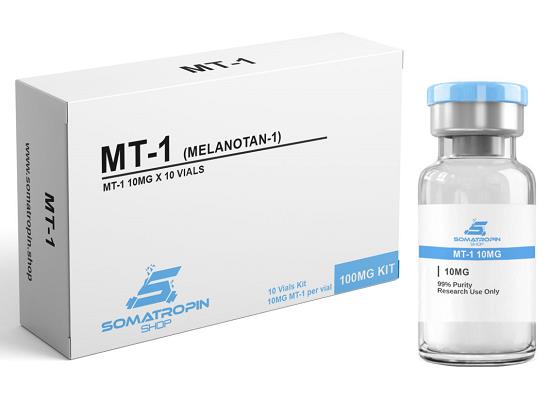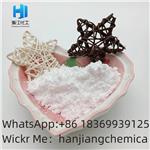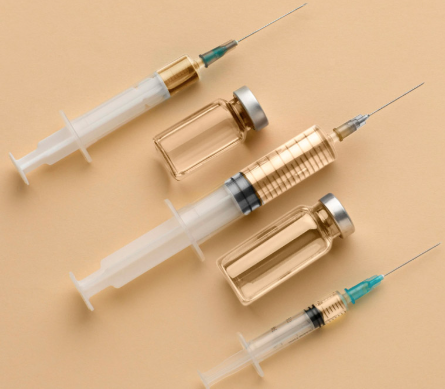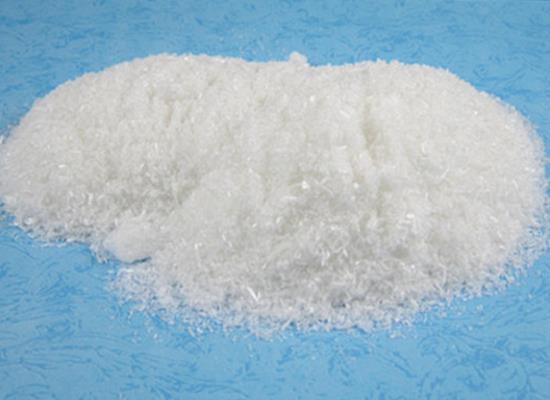Melanotan 1: mechanisms of action, clinical applications and safety
General Description
Melanotan 1 is a synthetic analogue of the hormone alpha-melanocyte stimulating hormone (α-MSH) and is primarily used for its tanning effects and potential treatment of skin conditions. It works by mimicking α-MSH and stimulating melanogenesis, leading to increased skin pigmentation. Melanotan 1 has shown promise in clinical applications for preventing actinic keratoses, squamous cell carcinoma, and managing photosensitivity disorders like erythropoietic protoporphyria. However, it is important to note that Melanotan 1 is not approved by regulatory authorities and its safety profile is not well-established. Users have reported side effects, and there may be concerns about product quality and contamination. Consulting a healthcare professional is advised before considering Melanotan 1 use.

Figure 1. Injection of melanotan 1
Mechanisms of action
Melanotan 1 is a synthetic analogue of the naturally occurring hormone alpha-melanocyte stimulating hormone (a-MSH). It works by mimicking the action of a-MSH in the body to promote tanning. When the skin is exposed to ultraviolet radiation (UVR), it causes DNA damage in the epidermal cells. In response to this DNA damage, a signaling event mediated by the p53 protein occurs, triggering increased synthesis of a-MSH by keratinocytes. The secreted a-MSH then binds to the melanocortin 1 receptor (MC1R) on nearby melanocytes. Activation of MC1R leads to an increase in cyclic adenosine monophosphate (cAMP) and cAMP-dependent protein kinase production. This ultimately enhances the activity of melanogenic enzymes, including tyrosinase, which is involved in the production of melanin. As a result, there is an increase in cutaneous eumelanin production, leading to skin pigmentation. The increased pigmentation provides a partial barrier to the penetration of UVR and visible light. Additionally, eumelanin also helps scavenge reactive oxygen species induced by UVR, which can cause damage to DNA, proteins, and lipids. Melanotan 1, which is a superpotent melanocortin, is designed to resist enzymatic breakdown, prolonging its duration of action at the MC1R compared to natural a-MSH. By stimulating the MC1R, it promotes melanogenesis by increasing melanocyte proliferation and upregulating tyrosinase activity. Overall, Melanotan 1 acts by mimicking the natural hormone a-MSH to stimulate melanogenesis and promote skin pigmentation, while potentially having additional effects on inflammation and cellular responses to UV radiation. 1
Clinical applications
Melanotan 1 has shown promising clinical applications in dermatology, particularly in the prevention and management of various photosensitivity disorders. Clinical trials have focused on its potential to prevent actinic keratoses and squamous cell carcinoma in organ transplant recipients, as well as its use in protecting patients with photosensitivity disorders such as erythropoietic protoporphyria (EPP), solar urticaria (SU), and polymorphic light eruption (PLE). Melanotan 1 works by inducing prolonged skin melanin production, which serves as a broad chromophore in the skin, absorbing UVB, UVA, and visible light. This makes it a potential prophylactic approach for skin diseases triggered or exacerbated by sunlight, offering protection beyond what traditional sunscreens can provide. Additionally, in EPP, where patients experience sensitivity to visible light due to the accumulation of the photosensitizer protoporphyrin IX, melanotan 1 has shown promise in increasing skin melanin density, leading to increased tolerance to photoprovocation and reduced skin pain. In conclusion, the clinical applications of Melanotan 1, or afamelanotide, demonstrate its potential as an innovative and effective approach in the management and prevention of a range of photosensitivity disorders, offering hope for improved quality of life for affected patients. 1
Safety
When it comes to safety, it is important to note that Melanotan 1 is not approved by regulatory authorities like the FDA for any medical or cosmetic use. Therefore, its safety profile has not been extensively studied or established through rigorous clinical trials. However, based on anecdotal evidence and limited research, there are a few safety considerations to be aware of. Some users have reported side effects, including nausea, flushing, increased blood pressure, and darkening of existing moles. Additionally, long-term use or overdose may potentially lead to more serious complications. It is crucial to emphasize that Melanotan 1 is not a regulated substance, and its production, distribution, and use may vary significantly in terms of quality and purity. This raises concerns about potential contamination or unknown substances in the product, which could further impact safety. If you are considering using Melanotan 1, it is strongly advised to consult with a healthcare professional who can provide personalized guidance and monitor your health throughout the process. 2
Reference
1. Langan EA, Nie Z, Rhodes LE. Melanotropic peptides: more than just 'Barbie drugs' and 'sun-tan jabs'? Br J Dermatol. 2010 Sep;163(3):451-455.
2. Habbema L, Halk AB, Neumann M, Bergman W. Risks of unregulated use of alpha-melanocyte-stimulating hormone analogues: a review. Int J Dermatol. 2017 Oct;56(10):975-980.
Related articles And Qustion
Lastest Price from Melanotan-1 manufacturers

US $0.00-0.00/KG2025-10-03
- CAS:
- 75921-69-6
- Min. Order:
- 1KG
- Purity:
- 99%
- Supply Ability:
- 1T

US $50.00/box2025-09-24
- CAS:
- 75921-69-6
- Min. Order:
- 1box
- Purity:
- 99%
- Supply Ability:
- 1000kg



